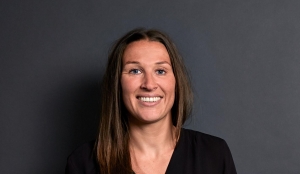Supreme Court: Dutch company had to withhold a-tax etc. from remuneration of divers who should be regarded as employees and not self-employed persons
On 8 December 2022, the Danish Supreme Court ruled on the distinction between self-employed persons versus employees.
The circumstances of the case
The dispute between a Dutch company, SMIT Subsea Europe B.V ("SMIT") and the Danish Ministry of Taxation concerned whether SMIT was obliged to withhold tax etc. from the remuneration it had paid out to divers who carried out diving work.
In 2011, SMIT undertook an assignment for an offshore project in the North Sea for the company Mærsk Oil & Gas. To carry out the assignment, SMIT entered into agreements with approximately 100 divers whereby the divers were regarded as self-employed persons in their relations with SMIT. The divers carried out work of varying duration on the project during the period from May to December 2011.
The decisive factor for the withholding obligation was whether the divers were to be considered employees or self-employed persons under the Ministry of Taxation’s Circular No 129 of 4 July 1994 on the Danish Personal Income Tax Act.
The divers involved came from many different countries, with a large number coming from the Netherlands and the UK and other European countries, but there were also divers from Australia, Thailand, South Africa, Saudi Arabia and Canada, among others. When concluding the contracts, SMIT obtained - at least from the Dutch divers - so-called "VAR" declarations, i.e. statements from the Dutch authorities supporting that the person concerned was "self-employed",.
Written statements from 12 of the divers were presented to the Danish District Court, all confirming that they worked as freelancers in 2011. The divers had also stated that they had the opportunity to turn down a project for SMIT and that the majority of them were doing work for other companies in 2011. Half of the divers questioned had indicated that they had taken out liability insurance. The divers had also indicated that they did not face any particular financial risk in the project, that - apart from having to bring their own personal diving equipment and pay for their own diving certificate and other certificates - they did not incur any particular expenses, that the tasks were assigned immediately prior to execution, that the remuneration was set at a daily rate, and that payment was typically made after the end of the rotation once the divers had sent a statement of the number of days worked to SMIT.
On the question of methodological freedom, some divers indicated that they followed a strict procedure without any methodological freedom, while others have indicated that the instructions in the plan laid down could be deviated from by agreement if a specific assessment indicated the need to do so, for example for safety reasons.
Finally, it was pointed out that the Danish Association of Diving Companies has stated that it is common practice for divers with professional diving training in Denmark to work as self-employed persons and to be established in sole proprietorships.
Findings of the High Court and the Supreme Court
The majority of the High Court (a dissenting judgment was delivered) found that there was an employee relationship, stated in its grounds, inter alia, that the divers had not been assigned specific tasks in advance and it had to be assumed that the divers had no methodological freedom of any significance in the performance of the task. Regardless that the consultancy agreements allowed the divers to carry out work for other employers, it was not established that the divers took advantage of this possibility during the period. Furthermore, the divers had not employed staff or hired help for the project, nor was there any right of substitution. For those divers who were resident abroad, SMIT paid for their air travel to and from the project.
The divers themselves bore the costs of personal diving equipment, which they had to bring with them, including diving suits, undersuits and diving knives, as well as the costs relating to the certificates required for the task, including the diving certificate. All other equipment was provided by SMIT or at SMIT's expense. Therefore, the divers cannot be regarded as having paid out of their remuneration any self-borne commercial expenses in excess of what is customary in an employment relationship.
After an overall assessment, the Supreme Court agreed with the grounds of the High Court that the divers could not be considered to have carried out the work on the project as self-employed persons at their own expense and risk but had to be considered as employees. The Supreme Court referred to the grounds of the High Court and emphasised, inter alia, that the divers were paid for their time on board the diving vessel even if they were unable to carry out tasks due to, for example, bad weather or illness.
The Supreme Court also specifically stated that the 'VAR declaration' which SMIT reportedly required the divers to provide was merely an automatically issued declaration documenting that the divers had registered as self-employed persons with the Dutch authorities and should therefore not be given decisive weight.
Bird & Birds comments:
It is important to bear in mind that in all cases, a specific assessment will be involved. The Supreme Court's judgment of 8 December 2022 thus supports the view that actual circumstances have the decisive importance for the assessment, and not the agreements drawn up between the parties or the declarations made by the authorities.
Bird & Bird notes that it is relevant whether the self-employed persons have only part of the financial risk, but that they are supposed to have the predominant part of the financial risk in the performance of the work, e.g. that they are not paid in case of illness or other lawful absence. And, in addition thereto, that they themselves bear all (or at least most) of the costs associated with the work.
In addition, the Supreme Court's judgment also underlines that the degree of freedom of action of the self-employed person is crucial, including that the degree of instruction and planning from the "client" is minimal.
Bird & Bird has previously written a newsletter on the same issue, but on a different factual basis, where the High Court reached the opposite result. The news can be read here.




